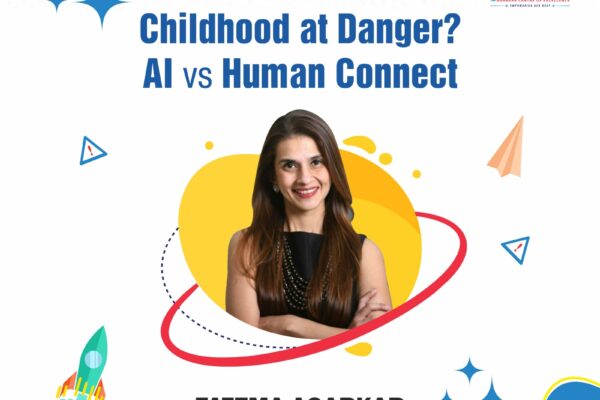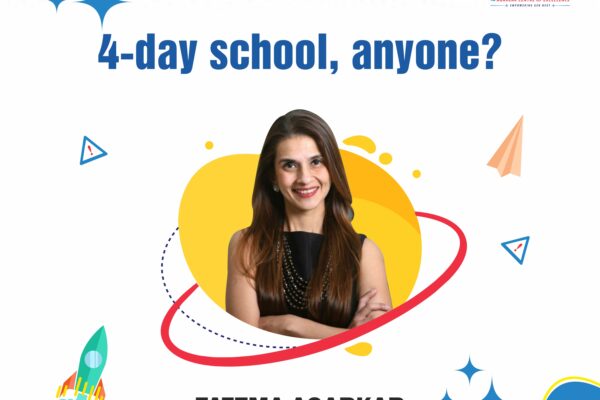As an educational consultancy, at ACE, we recognise that the establishment of every new K-12 school captures a vision for a Board of Trustees whose reasons vary from ‘making a difference,’; ‘bridging a gap’ or simply about creating an asset that eventually becomes a legacy (I am a believer that public or private schools defer on their capital structure composition and financial motive, but the vision should be the same for both). I am fascinated by the sheer number of professionals whose successful ventures in diversified industries gives them a foray into private education.
It’s both refreshing and welcoming for families given that the choice pool now widens, and with a fresh perspective there are hopefully better systems and processes. Having been instrumental in setting up over 50 over the last 2 decades, I know there is effort to ‘improve’ on ‘learnings of the past.’ Learnings of the past include not being fixated with academic boards as outcomes but more on the process of delivery!
In fact the last 5 years have witnessed a pandemic, lockdown months and a reopening which revealed that things need to change for the sake of the children – dramatically!
The tech debate finally ended, and the world of parents and educators, embraced its sheer advantage. And then there were deeper changes. Pace of change that I personally believe could be faster, but with this change has come a realisation that common sense, practicality and relevance are now becoming the buzzwords and while parents and schools advocating these remain in the minority, I believe that the direction of the wind has changed and with that will come momentum.
What does this all mean?
Sharing some conversations from my recent work trip to explain this (instead of losing your attention with some theory and jargon!)
While engaging with some early morning flight takers (yes, I have a compulsive need to befriend a fellow passenger!), I was delighted to hear a businessman share his aspiration and it wasn’t for his son to go to an Ivy League university but ‘invest’ in his foundation where he wanted his child to understand basic math skills (not the formulas to create an algorithm to crack some logistics trade), an awareness of global issues be the conflict in the Gaza strip or the on-going Ukraine crisis (and he was very direct when he said, why is the history syllabus only about the past without a mention of the present for young children, and why does it has only a ‘one-sided view?); the effects of climate changes and their impact eventually on the adaptability of the human race (why are we teaching them geography facts without an understanding about solutions). He spoke about sport for health and mindfulness, music for the soul and dance and art to create harmony peace and not simply from a career perspective. Science must be, he said about ‘basic’ skills and understanding and not testing for memory and about the research and theories presented with an ability to question them which is where those interested could go deeper into their understanding and create more problem solving engineers and doctors ! Yes, he wanted an all-rounder who could participate in conversations with different people and not perform ‘memory’ exercises. And have an appreciation of the many facets of the world around him.
Honestly, he was a man whose vision is what we bat for at ACE, and then I asked him about what happens if his child gets only a 50 percent ? Because higher education is still about how much you score. What would he feel? (I had to ask cause while this sounds brilliant, eventually all culmination of learning is a time-bound examination that determines the path ahead!
He looked at me and said, if he can express himself, he can figure out what to do in situations without calling ‘Papa or Mamma’, without panicking, if he can help a stranger for no reason and if he can learn to respect manual labour, then the 50 percent was good enough, perhaps more than 100 because that child would be able to survive. And he candidly said, “Ma’am what’s the guarantee that the top universities will create a mastermind of my son? And after degrees, what next?”
A big wide smile told him he had a life long fan in me. For he was voicing many truths we fail to recognise. For starters, pushing our children into ‘doing things’ because ‘that’s what others are doing’, defining our child by the mark and their high mark (thanks to the zillion of tuition teachers) which gives us a status symbol and not them as a direction ahead, spending lacs of rupees in higher education because that will somehow give them a pathway to a career, happiness and money and importantly, forgetting that the foundation is perhaps the most important.
A building does experience challenge if the base is weak, and how many more bridges need to collapse for us to realise that without basic skills, there cannot be an escalation?
I have parents consult me to ‘find’ the ‘best-school’ and I think they are devastated when I say such a place does not exist! It takes a well informed family to understand that ‘brands’ may not work for everyone, and ‘legacy’ is now becoming more of the number of years than the upgraded processes one follows.
For ‘progressive’ new age schools to create pathways for success for every child, who care about their emotional needs and not label them because of some of their challenges but celebrate their talents instead and support their limitations, who are willing to introduce more common sense and connections between subjects, who want to make learning more relevant and allow children to take ownership for their work, and not depend on tuitions, who want to expose children to a variety of skills from sports to music, from performing arts to debates, who are willing to ‘reduce’ content to help children learn with more understanding than amassing content that they can forget, we need a parent community who is willing to walk the talk and ‘break-the-chain’.
It’s not about the facade or the academic board, it is not about the fancy equipment or ‘name’ associations but about knowing the children in a way that helps them succeed with confidence, creating sensitive, aware allrounders who will contribute as law abiding citizens and create their own legacies.
It’s about the process of learning and a place that focused on connections- with parents, teachers and students, remaining mindful of their unique needs and aspirations and building a community that grows together.
This is not about ranks or numbers, about placements or performance. It is about core values and I rest my case with this:
I was speaking to a 12th grader, whose teacher was confident of the child securing a high grade because she had taught the child for over 3 years in high school and who requested me to speak to the child to motivate him to put in more work and get that top grade, and his candid response when I started my motivational talk, “ Got it M’am. I can get that 7 on 7 but what if I am content with my 5. Does that make me ‘not smart enough?’.
The hard truth was that an Admissions Team reviewing his grade would believe that. So as an educator, I continued to debate and push him into maximising potential for himself, and celebrating this milestone but the mother in me wanted to say, “You are more than good enough son, you have a mind with potential!”
How would you answer that educators? Parents?












